Join us on Friday 6th October at 16.30 when Associate Professor Christopher Rea, University of British Columbia, considers The Art of Ingenuity: A Brief History of the Chinese Swindle Story.
Why do collections of swindle stories appear at certain times and places? In China, for example, the swindle story has experienced bursts of popularity during the late Ming, the early Republican era, the early Mao era, and during the last 20 years. And comparable works exist around the world.

 This talk will consider what e.g. do Zhang Yingyu’s Book of Swindles (Ming China, 1617), Richard King’s The New Cheats of London Exposed (Georgian England, 1792), and P.T. Barnum’s The Humbugs of the World (Reconstruction-era United States, 1867) have in common?
This talk will consider what e.g. do Zhang Yingyu’s Book of Swindles (Ming China, 1617), Richard King’s The New Cheats of London Exposed (Georgian England, 1792), and P.T. Barnum’s The Humbugs of the World (Reconstruction-era United States, 1867) have in common?
Swindle stories, clearly, serve a double purpose: they teach techniques for navigating perilous social environments, and they entertain. But theirs authors tend to frame these narratives within a questionable claim: that ours is an age of unprecedented peril. Focusing on the example of China, this talk will highlight one thread running through literary history: connoisseur-ship of the swindler’s ingenuity.
Date: Friday 6th October
Time: 16.30 till 18.00 followed by a drinks reception
Venue: Screening Room,50 George Square, University of Edinburgh
Biography
 Christopher Rea is Associate Professor of Asian Studies at the University of British Columbia. He is author of The Age of Irreverence: A New History of Laughter in China (California, 2015), which won the 2017 Joseph Levenson Book Prize (post-1900 China).
Christopher Rea is Associate Professor of Asian Studies at the University of British Columbia. He is author of The Age of Irreverence: A New History of Laughter in China (California, 2015), which won the 2017 Joseph Levenson Book Prize (post-1900 China).
He is editor of China’s Literary Cosmopolitans: Qian Zhongshu, Yang Jiang, and the World of Letters (Brill, 2015) and Humans, Beasts, and Ghosts: Stories and Essays by Qian Zhongshu (Columbia, 2011); and co-editor of The Business of Culture: Cultural Entrepreneurs in China and Southeast Asia (UBC Press, 2015).
His mo st recent book, translated with Bruce Rusk, is The Book of Swindles: Selections from a Late Ming Collection (Columbia, 2017); the original work, said to be China’s first collection of stories about fraud, celebrates its 400th anniversary in 2017.
st recent book, translated with Bruce Rusk, is The Book of Swindles: Selections from a Late Ming Collection (Columbia, 2017); the original work, said to be China’s first collection of stories about fraud, celebrates its 400th anniversary in 2017.
Friday 6th October
16.30 till 18.00 followed by a drinks reception
Screening Room,50 George Square, University of Edinburgh
Click here to register for this talk and reception



 Henry Tillman initially spent a decade in New York with major investment banks,mostly advising on US organisations on M&A and capital raising. Since 1992, he has been based in London, including a senior management role at Barclays Group, with a focus on Europe and Southeast Asia and at ABN AMRO, where he was a Wholesale Banking Board Member, managing a global business with a focus on Emerging Markets, in particular Asia.
Henry Tillman initially spent a decade in New York with major investment banks,mostly advising on US organisations on M&A and capital raising. Since 1992, he has been based in London, including a senior management role at Barclays Group, with a focus on Europe and Southeast Asia and at ABN AMRO, where he was a Wholesale Banking Board Member, managing a global business with a focus on Emerging Markets, in particular Asia.
 Duncan is an expert on the internet and entrepreneurship in China where he has lived and worked for almost 25 years. He is also the author of ‘Alibaba: The House That Jack Ma Built‘ which was selected last year by the Economist as a ‘Book of the Year’ as well as being shortlisted by the Financial Times/McKinsey ‘Business Book of the Year’.
Duncan is an expert on the internet and entrepreneurship in China where he has lived and worked for almost 25 years. He is also the author of ‘Alibaba: The House That Jack Ma Built‘ which was selected last year by the Economist as a ‘Book of the Year’ as well as being shortlisted by the Financial Times/McKinsey ‘Business Book of the Year’.
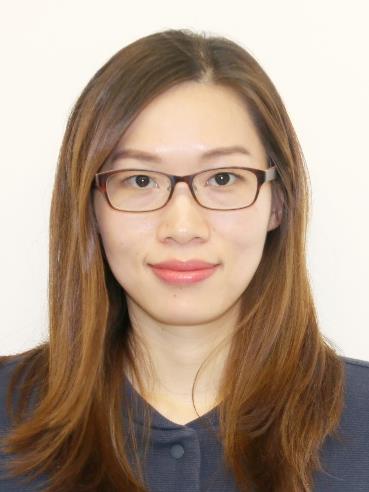 Dr Bai enjoys working in cross-disciplinary way combining fashion design, textile design, wearable electronics and interactive design. Her work is part of the permanent collection in the China Silk Museum
Dr Bai enjoys working in cross-disciplinary way combining fashion design, textile design, wearable electronics and interactive design. Her work is part of the permanent collection in the China Silk Museum
 Lord Powell was the No 10 Downing Street adviser on foreign affairs and defence to Margaret Thatcher when she was Prime Minister and continued in the same role for John Major in the early part of his time as Prime Minister . Since then he has pursued a career in international business serving on the boards of several major companies , has played a leading part in many public institutions and sits as a non-party member of the House of Lords . He has had a close association with China since visiting the country with Margaret Thatcher in the 1980s and subsequently with other British Prime Ministers and serving for many years as President of the China- Britain Business Council.
Lord Powell was the No 10 Downing Street adviser on foreign affairs and defence to Margaret Thatcher when she was Prime Minister and continued in the same role for John Major in the early part of his time as Prime Minister . Since then he has pursued a career in international business serving on the boards of several major companies , has played a leading part in many public institutions and sits as a non-party member of the House of Lords . He has had a close association with China since visiting the country with Margaret Thatcher in the 1980s and subsequently with other British Prime Ministers and serving for many years as President of the China- Britain Business Council.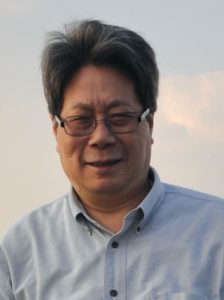 Current President of Shanghai Chinese Painting Academy and former president of the China Arts Museum, Mr Shi Dawai is one of the most important masters of Chinese painting in Shanghai. In addition to his many cultural posts such as vice Chair of the China Artist Association and chairmanship of Shanghai Federation of Literary and Art Circles, he is also a member of the CPPCC (the Chinese People’s Political Consultative Conference) National Committee.
Current President of Shanghai Chinese Painting Academy and former president of the China Arts Museum, Mr Shi Dawai is one of the most important masters of Chinese painting in Shanghai. In addition to his many cultural posts such as vice Chair of the China Artist Association and chairmanship of Shanghai Federation of Literary and Art Circles, he is also a member of the CPPCC (the Chinese People’s Political Consultative Conference) National Committee. Mme. Wang Liping is a member of the CPPCC Shanghai Committee and a playwright of the Shanghai Film Group. She is also a hugely successful and prolific screenwriter who over the last two decades has developed some of the most popular series on Chinese TV, winning awards both at home and abroad. She also holds a number of high level posts in the industry including VIce President of the Shanghai Television Art Association.
Mme. Wang Liping is a member of the CPPCC Shanghai Committee and a playwright of the Shanghai Film Group. She is also a hugely successful and prolific screenwriter who over the last two decades has developed some of the most popular series on Chinese TV, winning awards both at home and abroad. She also holds a number of high level posts in the industry including VIce President of the Shanghai Television Art Association.
 Prof Zhang while currently a professor in the School of Journalism at Fudan University, also serves as the Chief Advisor for China Business News (CBN), the largest business media group in China. Previously associate editor of the Financial Times, he served, from 2004-2015, as the founding editor of
Prof Zhang while currently a professor in the School of Journalism at Fudan University, also serves as the Chief Advisor for China Business News (CBN), the largest business media group in China. Previously associate editor of the Financial Times, he served, from 2004-2015, as the founding editor of  Bill Aitchison has spent the last three years in China taking pictures of the sometimes ingenious, sometimes ramshackle, improvised repairs that are a feature of the Chinese urban landscape. He will provide insightful commentary which, starting from these humble quick-fixes using plastic bottles, coat hangers and pieces of cardboard, opens up into a discussion of contemporary China which connects documentary photography to craft techniques, generational politics, decision making processes, the status of public space, wealth distribution and recycling, to name but a few of the directions it shoots out in. Sympathetic to the creativity of quick-fixes, this talk is balanced between identifying positive features in them while never forgetting the problems that necessitate them in the first place.
Bill Aitchison has spent the last three years in China taking pictures of the sometimes ingenious, sometimes ramshackle, improvised repairs that are a feature of the Chinese urban landscape. He will provide insightful commentary which, starting from these humble quick-fixes using plastic bottles, coat hangers and pieces of cardboard, opens up into a discussion of contemporary China which connects documentary photography to craft techniques, generational politics, decision making processes, the status of public space, wealth distribution and recycling, to name but a few of the directions it shoots out in. Sympathetic to the creativity of quick-fixes, this talk is balanced between identifying positive features in them while never forgetting the problems that necessitate them in the first place.

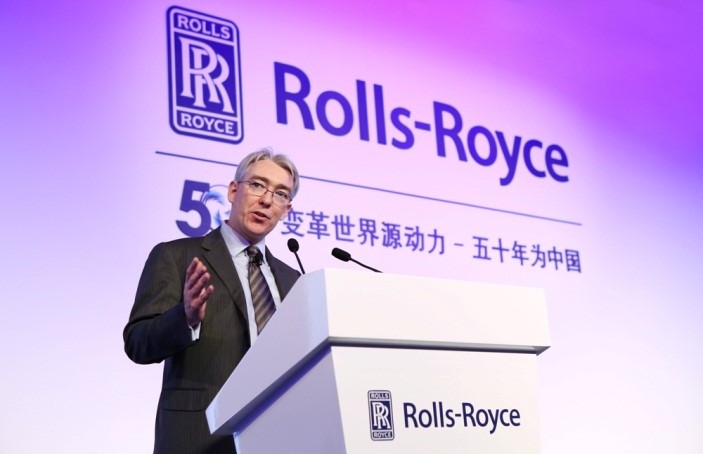
 Xu Xing, born 1956 in Beijing, started his career as a novelist and writer. His publication Variation Without a Theme won him accolades at the Beijing University Art Festival and international acclaim and awards such as the Tucholsky Prize for Foreign Literature (Pen International) and “Order of the Chevalier des Arts et des Lettres” from the French Ministry of Culture for his translated work.
Xu Xing, born 1956 in Beijing, started his career as a novelist and writer. His publication Variation Without a Theme won him accolades at the Beijing University Art Festival and international acclaim and awards such as the Tucholsky Prize for Foreign Literature (Pen International) and “Order of the Chevalier des Arts et des Lettres” from the French Ministry of Culture for his translated work.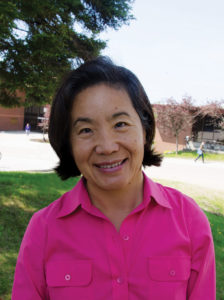 Lanyan Chen, is an Associate Professor of Social Welfare and Social Development, holds a PhD in Sociology from the University of British Columbia and a Master’s in Communications from Simon Fraser University. She publishes in both English and Chinese and brings a perspective of feminist political economy to her areas of research.
Lanyan Chen, is an Associate Professor of Social Welfare and Social Development, holds a PhD in Sociology from the University of British Columbia and a Master’s in Communications from Simon Fraser University. She publishes in both English and Chinese and brings a perspective of feminist political economy to her areas of research. Kai Vogelsang is professor of Sinology at the University of Hamburg. He studied Sinology and Economics in Hamburg and Taipei receiving a PhD in Hamburg (1997) and subsequently in Munich (2004). His fields of research are Chinese history of the pre-Qin period and the late 19th/early 20th centuries with a focus on conceptual history.
Kai Vogelsang is professor of Sinology at the University of Hamburg. He studied Sinology and Economics in Hamburg and Taipei receiving a PhD in Hamburg (1997) and subsequently in Munich (2004). His fields of research are Chinese history of the pre-Qin period and the late 19th/early 20th centuries with a focus on conceptual history.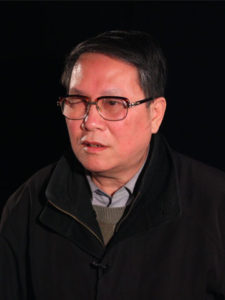 Professor Qin Hui 秦晖 is Professor of History at Tsinghua University, China. His research has covered several fields in economic history, social history and history of ideas. He has published more than twenty books including Fields and Garden Poetry and Rhapsodies (田园诗与狂想曲), Ten Treatises on Tradition (传统十论), Out of the Imperial System (走出帝制), Common Baseline (共同的底线), Issues and Isms (问题与主义), Revelations from South Africa (南非的启示).
Professor Qin Hui 秦晖 is Professor of History at Tsinghua University, China. His research has covered several fields in economic history, social history and history of ideas. He has published more than twenty books including Fields and Garden Poetry and Rhapsodies (田园诗与狂想曲), Ten Treatises on Tradition (传统十论), Out of the Imperial System (走出帝制), Common Baseline (共同的底线), Issues and Isms (问题与主义), Revelations from South Africa (南非的启示). Born in Kiev, Ukraine, in 1964 Yuri Pines works at the Hebrew University of Jerusalem. His research focuses on political thought of pre-imperial (pre-221 BCE) China and on the political culture of imperial China. He is also involved in studies of political, social, and religious history of pre-imperial and early imperial (Qin) China and of early Chinese historiography.
Born in Kiev, Ukraine, in 1964 Yuri Pines works at the Hebrew University of Jerusalem. His research focuses on political thought of pre-imperial (pre-221 BCE) China and on the political culture of imperial China. He is also involved in studies of political, social, and religious history of pre-imperial and early imperial (Qin) China and of early Chinese historiography.